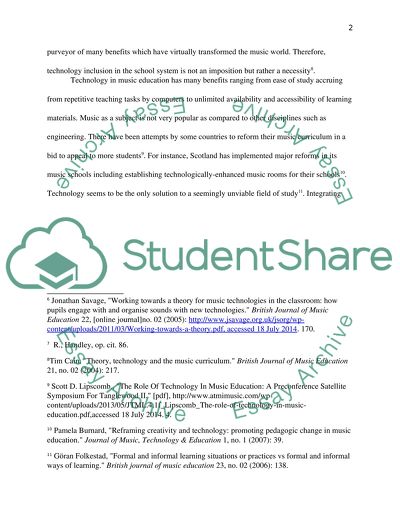Cite this document
(“Motivational Effects of Technology in Music Education Essay”, n.d.)
Retrieved from https://studentshare.org/music/1652942-motivational-effects-of-technology-in-music-education
Retrieved from https://studentshare.org/music/1652942-motivational-effects-of-technology-in-music-education
(Motivational Effects of Technology in Music Education Essay)
https://studentshare.org/music/1652942-motivational-effects-of-technology-in-music-education.
https://studentshare.org/music/1652942-motivational-effects-of-technology-in-music-education.
“Motivational Effects of Technology in Music Education Essay”, n.d. https://studentshare.org/music/1652942-motivational-effects-of-technology-in-music-education.


